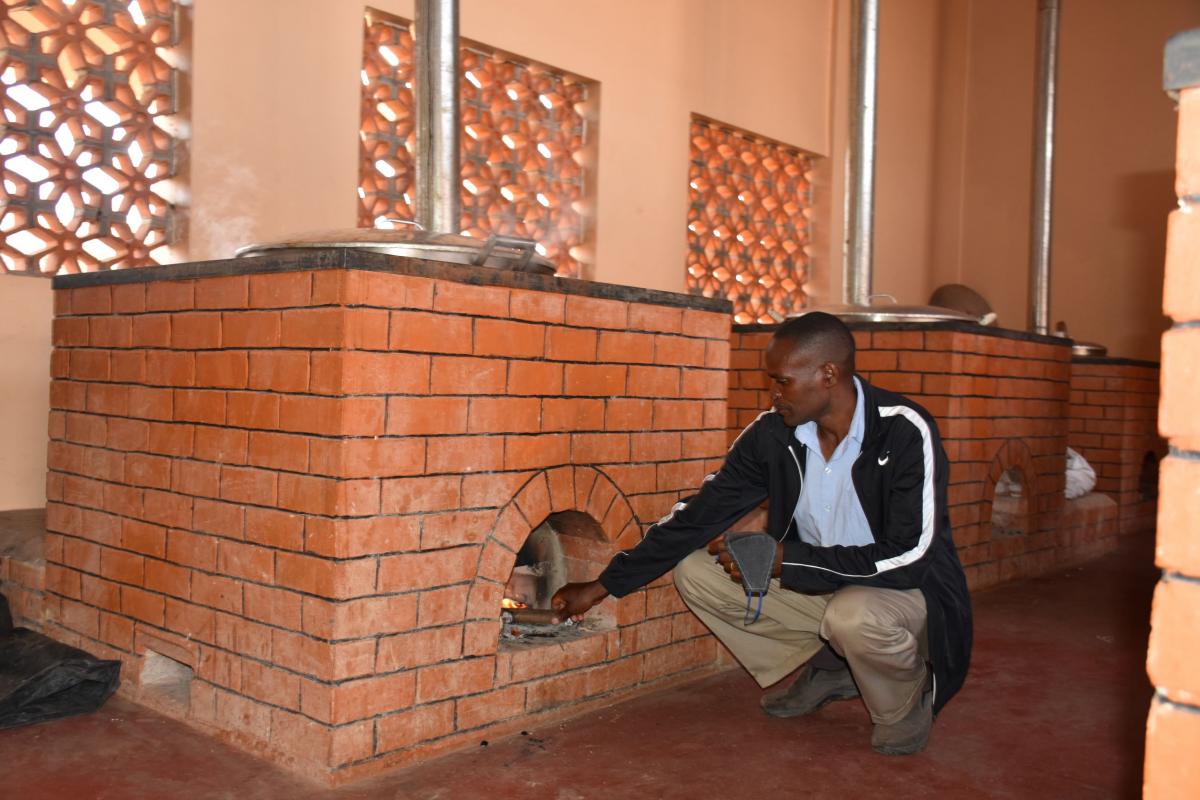NTCs tap into renewable energy resources - Uganda
Renewable
energy is an important piece of the puzzle in meeting the growing energy
demands and mitigating climate change. The increase in human population and
rising levels of consumption have elevated energy demand, placing increasing
burdens on the environment, particularly on global climate. In Uganda, renewable
energy sources which are fairly distributed throughout the country, come in
many forms. These include hydropower, solar, biomass and geothermal, contributing
an estimated 5,300 MW to renewable energy power generation.
About 90% of Uganda’s population (41.5 million
people) live on agriculture, which makes biomass the most readily available source
of energy for the majority of the Ugandan population. Of these biomass sources,
firewood which contributes over 80% to Uganda’s energy sources is predominantly
used in homesteads, institutions, and some industries. National Teachers’
Colleges are not an exception when it comes to consuming firewood for meal
preparation. However, relying solely on firewood has several health and
environmental implications. To play our part in conserving the
environment, Enabel has installed energy-efficient wood-saving stoves in the National Teachers’ Colleges (NTCs). Today,
NTCs have reduced their need for firewood by over 50% (from 8 to 4 truckloads) per term
resulting in a saving of UGX 7.2m (1,800 EUR) per college and an overall saving
of UGX 28,800,000M (6,975 EUR) in the colleges. Wood efficient stoves not only
create a disease-free environment from the reduced smoke but also save on
cooking time and conserve the environment by reducing deforestation.
In
addition to the use of energy-efficient wood stoves, biogas is another affordable
green energy intervention that has been adopted in the NTCs. The National Teachers’
Colleges have farms that accommodate livestock that produce a valuable
bioresource, ‘cow dung’. Cow dung contributes to greenhouse gasses and can be
hazardous if not managed well. With this in mind, the NTCs are processing
biogas from livestock spew to serve as an alternative source of cooking energy.
This is a positive step towards achieving a carbon negative environment in the
NTCs through the reduction of greenhouse gas emissions.
Biogas
has also played an important role in the teaching and learning process in the
NTCs. Biodigesters in the colleges’ farms serve as a teaching resource to
demonstrate the best agricultural practices to students like feeding livestock,
maintaining good hygiene in the animal quarters, processing organic waste,
collecting manure, and processing it in the biodigester. Students are now able
to get a more practical learning experience out of Anaerobic digestion which
has increased their knowledge of the process.
With
hydropower being expensive and largely unreliable in many parts of the country
especially the countryside where the NTCs are located, the NTCs have been
equipped with fully functional solar power systems to substitute
hydroelectricity. Classrooms, dormitories and teachers’ quarters have solar
energy for both lighting and conducting computer-aided lessons. This has helped
tackle the issue of power outages that interrupt teaching and learning in the National
Teachers’ Colleges. The presence of solar energy in the NTCs has also enabled students
to leverage extra study time, and lecturers can prepare lessons after dusk.
“We
have solar which has enabled us to read and prepare lessons during power outages
in Kaliro” Sarah Nawoova, lecturer NTC Kaliro.
Solar
lighting panels have also been placed along school walkways and dark areas which
create a safe learning environment that has reduced the prevalence of gender-based violence in the Teacher’s colleges.
To
aid cooking in the NTCs, solar water heating systems of 9x300ltr capacity have
been installed in the college kitchens. The solar hot water heating systems
help reduce the overall cooking cycle by pre-heating the water needed to
prepare food in the colleges. Presently, meal preparation is taking half the
time compared to the times before having the solar water heaters. Students and lecturers
can have meals on time and go by their day-to-day routines without the worry of
meal delays.
The
National Teachers’ Colleges were rehabilitated under a number of renewable
energy interventions under the Teacher Training Education project implemented
by Enabel and the Ministry of Education and sports. The installation of
renewable energy is a deliberate strategy to tap into the abundant renewable
energy resources available and share the energy savings in the respective
colleges. This is expected to raise awareness of the potential environmental
and financial benefits of renewable energy to students, teachers, and local
communities of the NTCs in Uganda.
Dernières actualité de ce projet
Pas d'actualité

